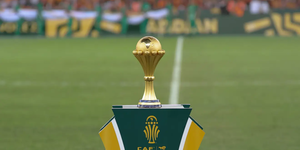In 1993, veteran politician Kenneth Matiba saw his presidential petition against retired President Daniel Toroitich Arap Moi thrown out by the Court of Appeal on the grounds that it was not signed by the petitioner (Kenneth Matiba), instead, it was signed by his wife Edith Matiba.
Matiba had run an electrifying campaign against President Moi in 1992 following the reintroduction of multi-party politics, finishing second. He, however, alleged that Moi rigged the election.
Prior to the elections, on July 1990, Matiba had been arrested and detained without trial at the Kamiti Maximum Security Prison with Raila Odinga (later Prime Minister) and Charles Rubia for demanding the re-introduction of multiparty democracy in Kenya.
The arrest came ahead of a planned political rally on July 7, that year, by the opposition leaders which was to be staged at Kamkunji grounds in a bid to end former President Moi's one-party state system.
However, during detention in 1990, Matiba became sickly and physically incapacitated after suffering a stroke and thus gave his wife the power of attorney to sign the court papers in 1993.
On July 1, 1993, the High Court ruled that Matiba’s petition was valid because in the circumstances of the applicant, such as his inability to write and sign, the signature of the applicant’s wife was a valid and sufficient signature for the purposes of the rule.
Moi’s lawyers objected to the move but were overruled by the High Court. They appealed the case and it was heard before the appellate judges in the Court of Appeal led by Justice Riaga Omolo.
In the case, Matiba had also blamed Moi for his ill-health which had deprived him of the power to sign documents.
The Court of Appeal dismissed Matiba’s case on account that it had been “filed improperly”.
“I have already pointed out that if there was no valid election petition before an election court, then that court from the very beginning, would have no jurisdiction to proceed to determine the questions set out in the two sections of the constitution and the court would be bound to decline jurisdiction and strike out the purported petition,” Justice Omolo stated.












